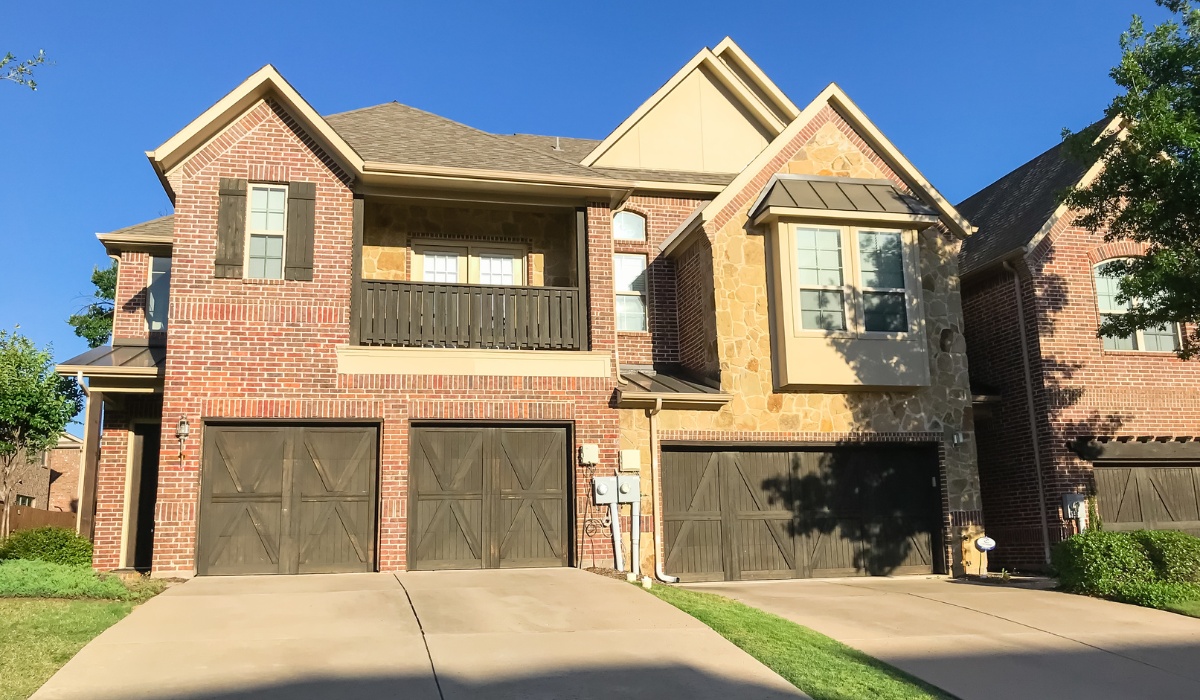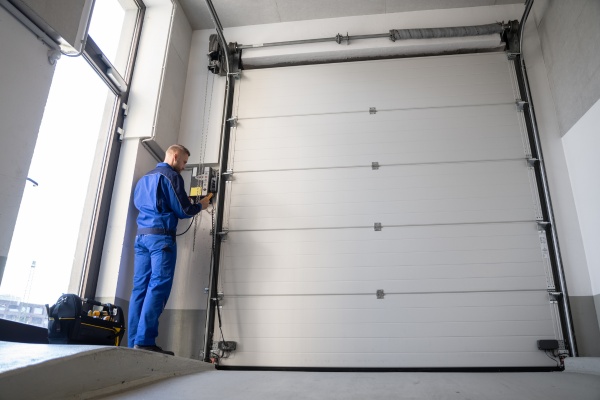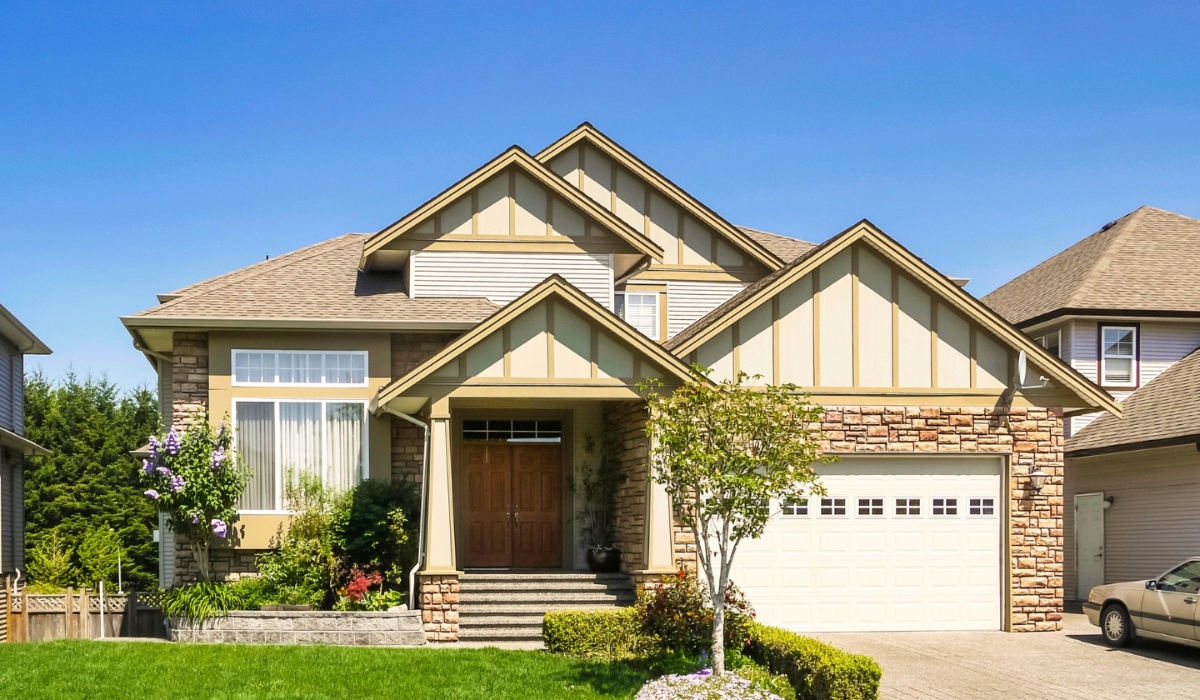Is your garage door refusing to cooperate? Don't let a malfunctioning door disrupt your daily routine. This comprehensive guide will walk you through common garage door problems, DIY solutions, and when it's best to call in a professional. We'll cover everything from identifying the issue to understanding repair costs and ensuring long-term security.
What are common causes of a broken garage door?
Garage doors, while seemingly simple, comprise several intricate parts that can malfunction. Common issues include broken springs, doors coming off track, stuck doors, and noisy operation. Understanding these problems is the first step toward effective repair. Regular maintenance and lubrication can often prevent these issues.
Broken Spring
A broken garage door spring is a frequent culprit, often resulting in the door becoming completely inoperable. These springs are under immense tension, and a sudden break can be dangerous. Never attempt to repair a broken spring yourself without proper training and safety precautions; professional help is crucial. Ignoring this can lead to serious injury.

Off Track Door
If your garage door is off track, it may bind, making it difficult or impossible to open or close. This often happens due to impacts or wear and tear on the rollers or track. Careful realignment is often possible, but persistent issues might indicate more extensive damage.
Stuck or Jammed Door
A stuck or jammed garage door might be caused by various issues – from debris and obstructions to frozen components during winter. Before attempting any repairs, always ensure the door is completely disconnected from the power supply to prevent accidents. A simple inspection often reveals the cause.
How can I identify if my garage door needs repair?
Recognizing the signs of a failing garage door is crucial for preventing further damage and ensuring safety. Pay close attention to unusual noises, sluggish operation, and any indication that the door isn't functioning correctly.
Signs of Wear and Tear
Look for signs of wear and tear on the springs, rollers, cables, and tracks. Rust, bending, or fraying are all cause for concern and may indicate a need for repair or replacement. Regular inspection is key to prevent costly problems down the line.
Safety Checks
Regularly check the automatic reverse mechanism by placing an object in the path of the closing door. If it doesn't reverse, there is a problem with the safety sensors, which needs to be repaired immediately. Ensure proper alignment of sensors is critical for safe operation.
Should I repair my garage door myself or hire a professional?
Repairing a garage door can be a DIY project, but it's crucial to assess your skills and the complexity of the repair before attempting it yourself. Some repairs are simple and safe for homeowners, while others pose significant risks.
Pros and Cons of DIY Repairs
DIY repairs can save money, but improper repairs can lead to further damage and potential safety hazards. Always weigh the risks and benefits before deciding on DIY versus professional repair. Consider the complexity of the repair and the safety aspects carefully.
When to Call a Professional
For complex repairs such as broken springs, significant track damage, or electrical problems, it's always best to hire a qualified garage door technician. Professionals have the expertise and tools to safely and effectively address these issues.
What are the costs associated with garage door repairs?
The cost of garage door repair varies depending on the type of repair, the parts needed, and the labor charges. Factors such as the age of the door and the severity of the damage also influence the overall cost.
Average Repair Costs
Average repair costs can range from a few hundred dollars for minor repairs to several thousand for major issues like spring replacement. Obtain multiple quotes from different repair services to compare pricing and services.
Factors Affecting Repair Costs
Labor costs, parts replacement, and the urgency of the repair (emergency versus scheduled) all impact the total cost. http://jareddsty983.cavandoragh.org/secure-your-furry-friends-garage-door-safety-for-pets-in-2025 It's essential to understand these factors when budgeting for your repair.
How often should I perform maintenance on my garage door?
Regular maintenance is key to extending the life of your garage door and preventing costly repairs. A simple maintenance schedule will ensure your door stays in top condition.
Recommended Maintenance Schedule
Aim for a thorough inspection and lubrication of moving parts at least twice a year – once in spring and once in fall. This prevents wear and tear and detects issues early on.
Key Maintenance Tasks
Lubricate moving parts, including hinges, rollers, and tracks. Check the springs for any signs of wear or damage. Tighten any loose bolts or screws. Inspect the cables for fraying or breakage. These simple steps will ensure longevity.
What types of garage door repairs are most common?
Several common garage door repairs frequently occur due to wear and tear, accidents, or normal use. Understanding these will help you diagnose and address problems quickly.
Spring Replacement
Garage door springs are under considerable tension, so replacing them is best left to professionals. This is a common repair and requires specialized tools and expertise.
Cable and Roller Replacement
Worn or broken cables and rollers lead to noisy operation and potential track damage. Replacing these is usually a relatively straightforward process, but professional help is often recommended.
What improvements can I make to ensure my garage door is secure?
Ensuring your garage door's security is paramount. Modern technologies offer enhanced security and convenience features.
Security Features
Consider installing a high-quality lock or reinforcement kit to deter forced entry. Regularly check the door's seals and weatherstripping to prevent unauthorized access.
Automation Options
Smart garage door openers provide remote access, monitoring, and enhanced security features. These systems offer convenience and improved security through features like automatic locking and smartphone integration.
Seasonal Tips for Garage Door Maintenance
Prepare your garage door for the changing seasons to prevent problems. In winter, lubricate moving parts with a weather-resistant lubricant. During summer, check for any signs of damage from heat or expansion.
New Technologies in Garage Door Systems
New technologies, such as smart garage door openers and quiet-lift mechanisms, offer improved security, convenience, and functionality. Exploring these advancements can significantly enhance your garage door experience.
Importance of Regular Inspections
Regular inspections, ideally twice a year, are critical for identifying minor problems before they escalate into major, expensive repairs. Early detection prevents extensive damage and ensures safe operation.
FAQ Section
Q: What should I do if my garage door won’t close?

A: Check for obstructions, ensure the safety sensors are aligned, and if the problem persists, contact a professional repair service.
Q: How long does a typical garage door repair take?
A: Repair time varies depending on the complexity, but most repairs can be completed within a few hours.
Q: Are there warranties on garage door repairs?
A: Many repair services offer warranties on parts and labor – always inquire about warranty details before proceeding.
Q: Can I replace only one part of my garage door?
A: Yes, it's often possible to replace individual components like springs or rollers without replacing the entire door.

In conclusion, addressing a broken garage door promptly and effectively is crucial for both safety and convenience. Whether you choose a DIY approach or enlist professional help, understanding the common causes, repair costs, and preventative maintenance steps will empower you to keep your garage door functioning smoothly for years to come. Don't hesitate to contact a reputable garage door repair service for expert assistance.